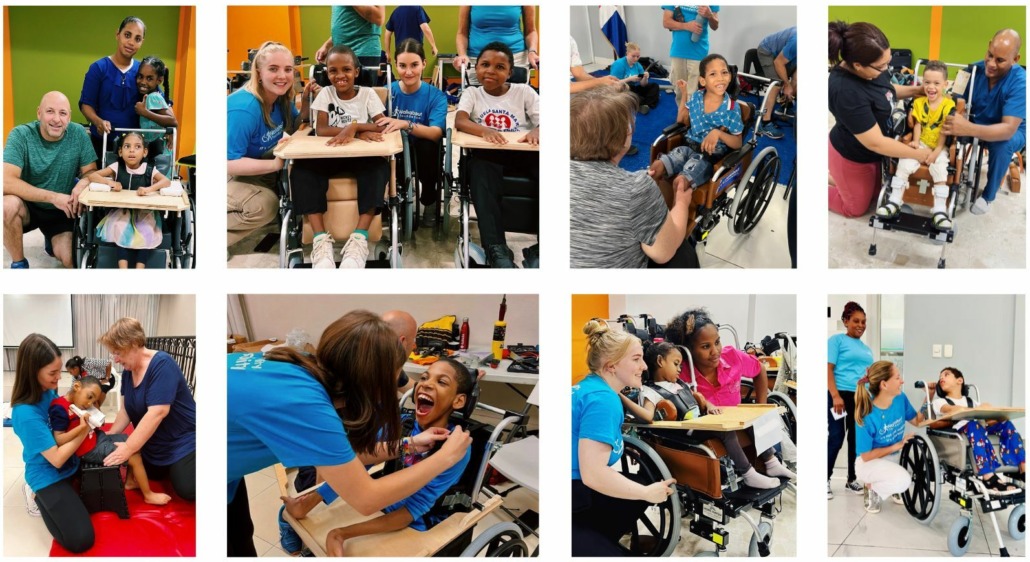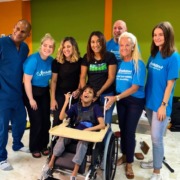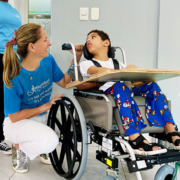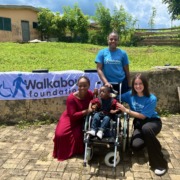Measuring Impact: Monitoring & Evaluation in the Dominican Republic
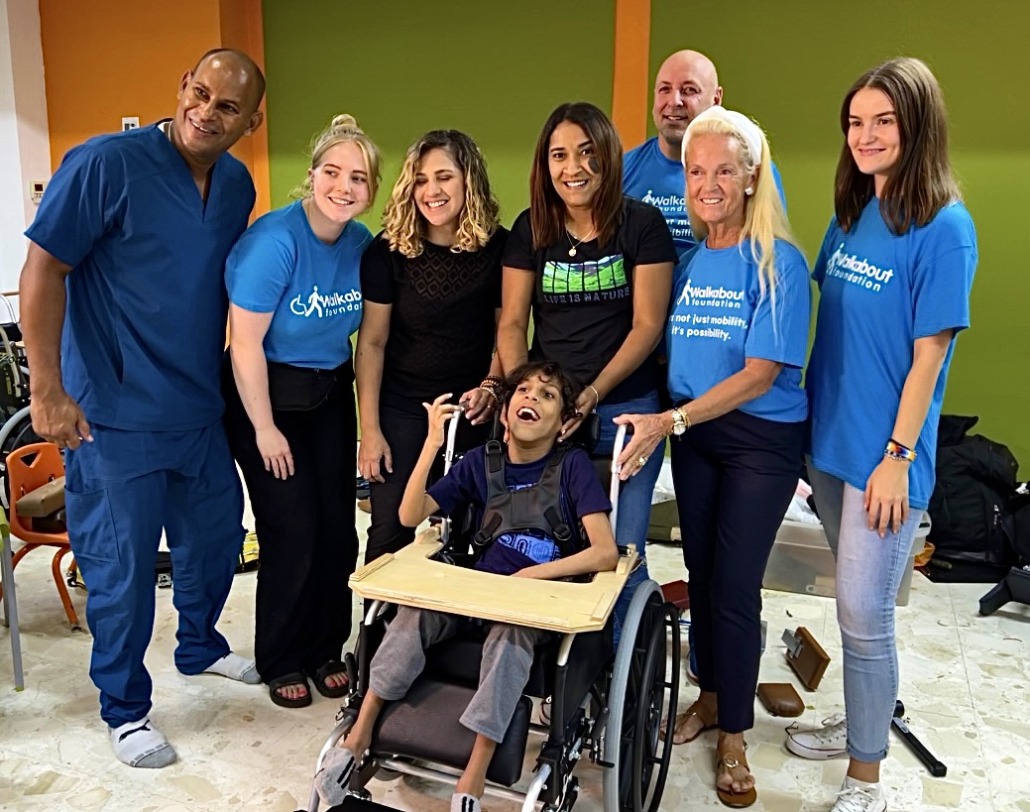
Walkabout Foundation has been supporting individuals with mobility disabilities in the Dominican Republic for over a decade. Since our first distribution in 2010, we have provided 927 wheelchairs, impacting over 2,200 lives. However, the impact of our efforts extends beyond distributions. As a part of our holistic wheelchair provision, we recognise the importance of follow-up services, ensuring we offer ongoing support and address beneficiary needs post-distribution.
Following our last visit to the DR, we worked with our local partner to co-design a Monitoring & Evaluation (M&E) survey. The project aimed to measure the impact of the wheelchairs on the lives of our recipients and their caregivers. The local team collected the data between October 2022 and October 2023, following up on 167 past beneficiaries.
While measuring the impact of a wheelchair or trike on someone’s life, we looked at key areas such as quality of life and wellbeing, independence, repairs, employment, education, social inclusion, and overall wheelchair satisfaction. Amongst our findings were:
1. Quality of Life & Wellbeing
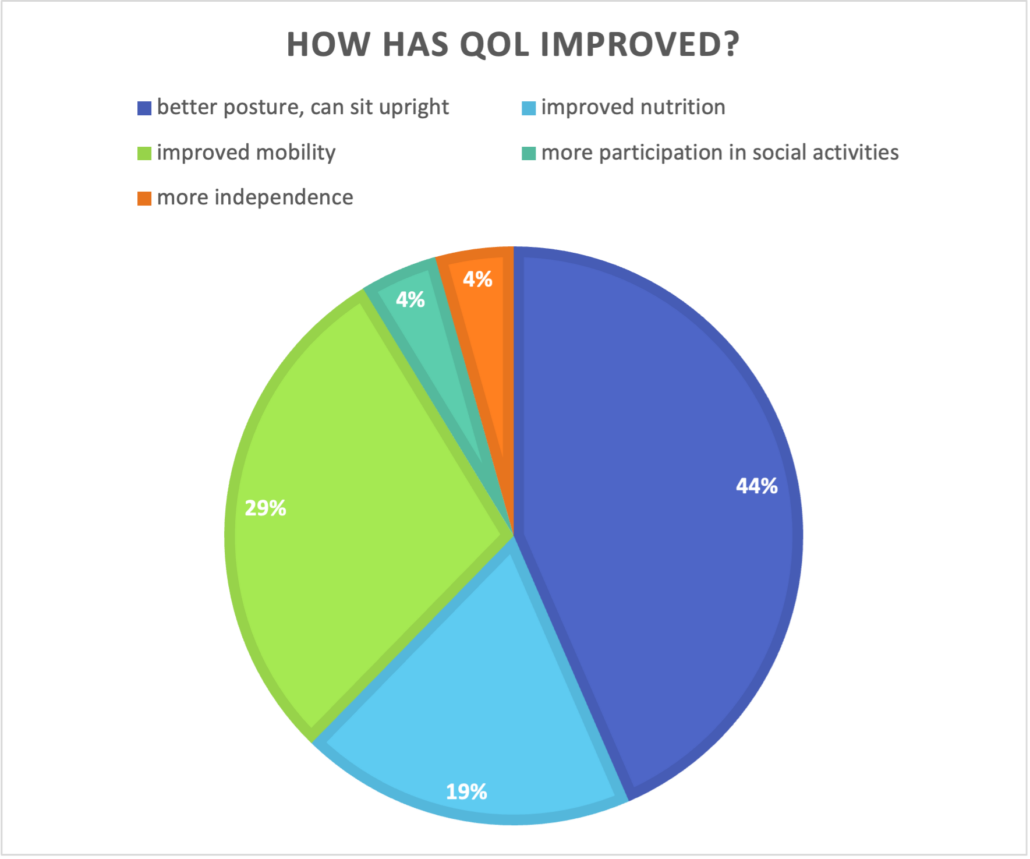
Improved Quality of Life
100% of respondents reported an improvement in their quality of life after receiving a wheelchair. Better posture, enhanced mobility, increased participation in social activities, improved nutrition, and greater independence were among the most common themes reported by recipients.
Social Inclusion
After receiving their wheelchairs, children experienced a 19% increase in community participation, frequently engaging in various activities such as going to church, visiting neighbours, and attending family gatherings outside their homes.
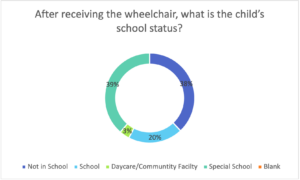
2. Education
Increased School Attendance
Following the distribution, there was a significant decrease in the number of children not attending school, dropping from 114 to 52 children (almost 50%).
Follow-up initiatives, such as our Monitoring & Evaluation Project, are essential for assessing the long-term impact of wheelchair provision, identifying areas for improvement and providing ongoing support to recipients as their needs evolve over time. The data collected showed that wheelchairs, as part of a holistic approach to disability-care provision, significantly contribute to improving the lives of people with mobility disabilities, despite the many challenges they still face.
